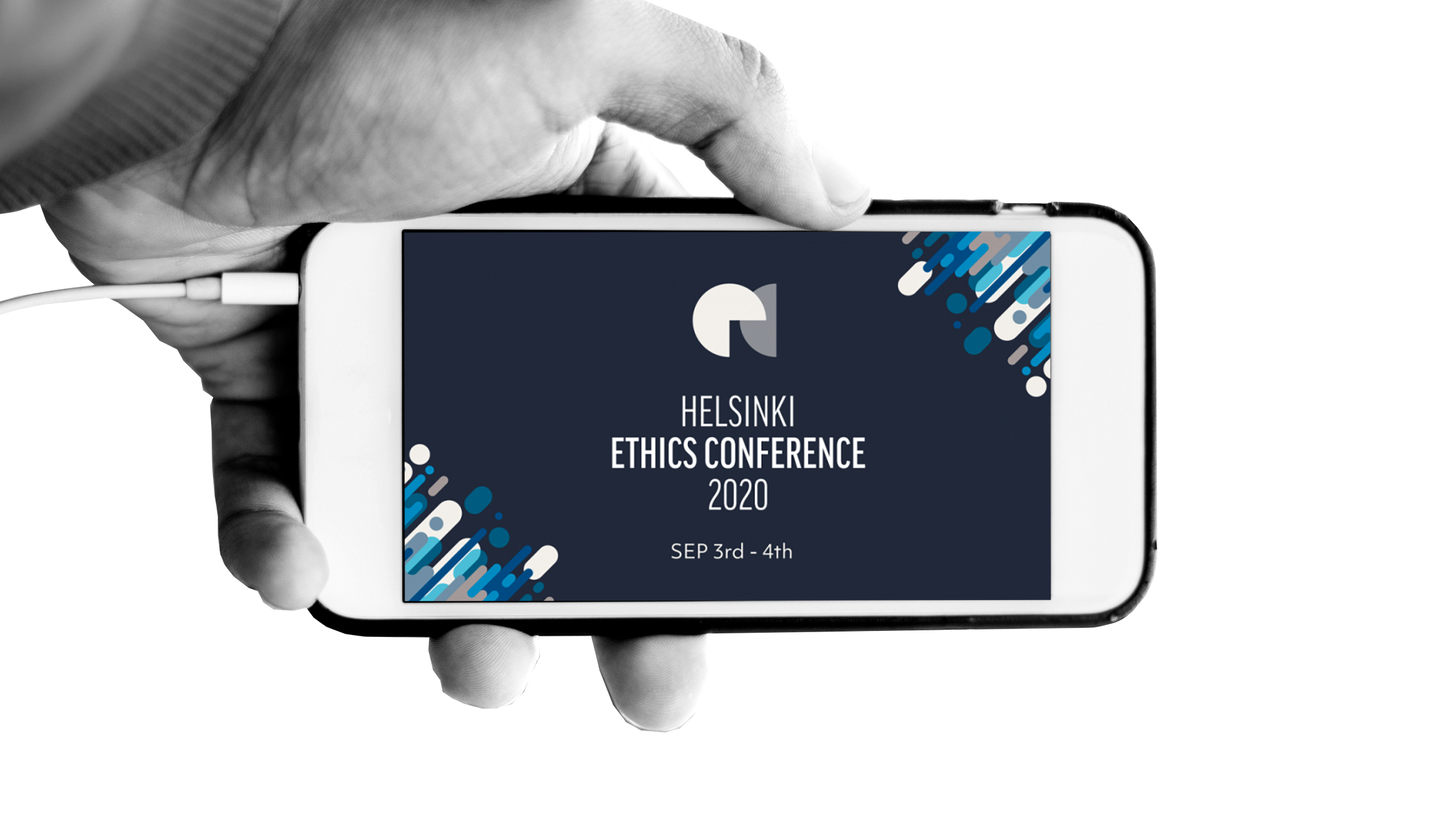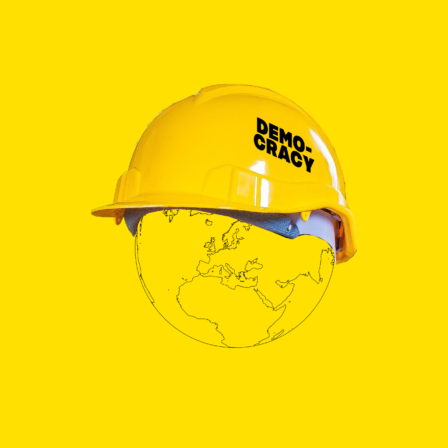With growing concern, we have witnessed the corroding effects of non-factual and vitriolic debate on democracy. This has raised the question of ethics to the forefront of academic media research and communication studies. Also, a growing number of journalists and communications professionals are joining the conversation. One example of this was the Helsinki Ethics Conference 2020, which gathered PR and communication professionals, journalists, and academia to discuss the effects of polarised debate, fake news and mis- and disinformation on our societies.
Sitra President Jyrki Katainen who spoke at the conference said we must uphold the highest standards of free, independent journalism, communications, and public discourse.
“The principles of unbiased journalism are well known, but it is important that the communications industry adheres to high standards and principles as well,” Katainen said.
Therefore, initiatives such the Council of Ethics for Communication that was established in Finland a few years ago are key to creating standards for professionals where disseminating information is based on truth and facts.
Katainen also reminded of the responsibility of the individual as content producers and communicators on a wide variety of different social media platforms.
“How can an adult person, say, a journalist or a member of parliament, use language that we’d never teach our children to use?” Katainen, who is also a former Prime Minister of Finland, asked in an interview with the daily Helsingin Sanomat following his speech.
Read Jyrki Katainen’s full speech here:
Thursday 3 September 2020
Ethics and European Competitiveness
Ladies and Gentlemen, Dear Friends,
It is a pleasure to be speaking here today, as the theme of the conference could not be more timely. The current COVID-19 crisis has accentuated the question of ethics – in more ways than we could have ever anticipated.
I would like to thank and the organiser Procom for giving this topic the prominence it deserves.
When I was asked to address the question of Ethics and European Competitiveness in January, I was immensely optimistic about my message as the new European Commission had just recently published its six priorities for the five-year term. They are extremely ambitious and from an ethical perspective.
Among the priorities are A European Green Deal, A Europe fit for the digital age and A new push for European Democracy, in which we aim to give Europeans “a bigger say and to protect our democracy from external interferences such as disinformation and online hate messages”.
Well, in March the coronavirus crisis hit, and things became more complicated as far as the EU’s priorities were concerned.
***
When it comes to ethical leadership or leadership in values, we often neglect the most obvious European strengths, which are as follows.
- The European single market, which seeks to guarantee the free movement of goods, capital, services and labour – what are termed the “four freedoms”. The European single market proved its unique might during the COVID-19 lockdown. To give just one example, Europe’s food supply chain and logistics worked smoothly, and Europeans continued to have access to quality food and drink products during the pandemic.
- The rule of law and democracy (and the EU mechanism on democracy, the rule of law and fundamental rights)
- The power to regulate / the EU’s emergence as a global regulatory power. Regulation has become a key tool for advancing the European agenda and values – the GDPR regulation is a perfect example, having an impact that has stretched far beyond Europe.
- And last but not least, Trade – which, like the previous point about the strength of regulation, has pursued an agenda that has had a similarly influential impact beyond Europe’s borders
The European single market and the rule of law and democracy
Now, it is important to keep in mind that the relationship between the common market (or single market) and democracy is not automatic, but a CLEAR CHOICE. The aforementioned six priorities of the current European commission are a case in point.
Yes, the economy can function without deeper cultural and societal ties and, as developments in recent decades have shown, economic growth can be promoted without the rule of law or democracy.
As it has often been said, the EU did not start as a strong community of values. But it has gradually evolved into a community of values, the sum of several factors. The EU is now a community that is firmly grounded in the values of democracy, human rights, the rule of law and a free market economy, all of which are clearly enshrined in the EU Treaties.
The EU is the largest and the wealthiest internal market in the world. It is also the biggest trader in the world and the biggest provider of development aid. Irrespective of some of the issues with these fundamental values within some of our member states, we are a democracy driven by the rule of law. All of this provides us with an ideal opportunity to influence rules and values, not only in Europe but also globally. In other words, we have the power to shape and design the future and doing so, make values matter.
Considering the global challenges and opportunities presented by issues such as climate change and the use of data, the EU is well placed to define new and sustainable rules, principles and solutions.
For example, the EU’s role as a European-wide market regulator enables it to create new markets for circular economy businesses and for an ethically sustainable data economy.
The circular economy and the data economy, I believe, will be the biggest drivers of growth in the future. If someone wants to operate in our market, they must adapt to our market regulations. This also gives us a strong hand in trade negotiations. There are already plenty of examples where Europe has shown the way and others have followed: leadership in climate policy, GDPR regulation, the circular economy and product policy regulations, to name just a few.
So, why am I talking about the EU’s regulatory role? There are three reasons. First, because markets are always regulated in one way or another. Second, because regulation mirrors the values the policymaker believes in. And third, because we have the economic power to influence the rest of the world.
***
At present, the EU’s role as a community of values is being challenged on many fronts – not least by an increasingly nationalist United States that has turned against the very idea of European integration, and by an ever more power-hungry China that has, at times, attempted to “divide and rule” within the union.
The COVID-19 crisis has put an extra strain on the multilateral system, a system on which the whole essence of the European Union is based.
But when it comes to the rule of law and democracy, an even bigger risk lies within. The handling of the eurozone crisis left scars and alienated people in many member states. The EU was not always at fault, but it had to bear the brunt.
With growing concern and discomfort, we have observed Hungary and Poland heading down a path that diverges from that of European norms and values. Political opposition, social dialogue and free speech have increasingly been silenced – with the media and civil society suffering the burden.
The two countries are the most visible examples of worrisome development within the EU, but it is fair to say that there is room for improvement in some other member states too as far as the rule of law is concerned.
This has become a more topical issue recently when there has been a need for closer integration. Deeper union requires trust between the member states and commonly applied rules, norms and principles, including ethical principles. If this is not the case, we cannot expect a system like the single market to function properly.
There are many reasons for the increase in rule-of-law problems in the EU. History may partially explain the situation; power structures in some countries were built a long time ago and have yet to be modernized. On the other hand, in some countries, fundamental values and transparency have never been deeply rooted in administration, which makes it easy for leaders of a certain character to misuse power and undermine the rule of law.
Also, the growing trend of dis- and misinformation coupled with populism has encouraged some political leaders to challenge ethical norms – to meet the growing demand from people for simplified solutions in a complex world filled with wicked problems.
***
Since I have the privilege to speak to an audience that consists of communications professionals, researchers and perhaps even some journalists, I would like to stress my concern about how disinformation (the deliberate spread of misleading or biased information) erodes trust in society and democratic institutions.
Last week the US-based Institute for Public Relations published the Disinformation in Society Report and the key finding was that a clear majority of Americans are gravely concerned about mis- and disinformation (61% and 58% respectively) – this a far bigger concern to the American public than illegal drug use or abuse, crime and gun violence.
Having witnessed the deteriorating effects of misinformation on the world’s leading democracy, we must learn to fight the phenomenon. This means we must uphold the highest standards of free journalism, communications and public discourse. The principles of unbiased journalism are well known, but it is important that the communications industry adheres to high standards and principles as well.
Therefore, initiatives such the Council of Ethics for Communication that was established in Finland a few years ago are key to creating standards for professionals where disseminating information is based on truth and facts. Also, we as private individuals each have a responsibility as content producers and communicators on a wide variety of different social media platforms.
Otherwise, the alternative is “truth decay”, and we now know how devastating its effects are on political and civil discourse.
For more information on Helsinki Ethics 2020 visit site https://helsinkiethics2020.com/





Recommended
Have some more.